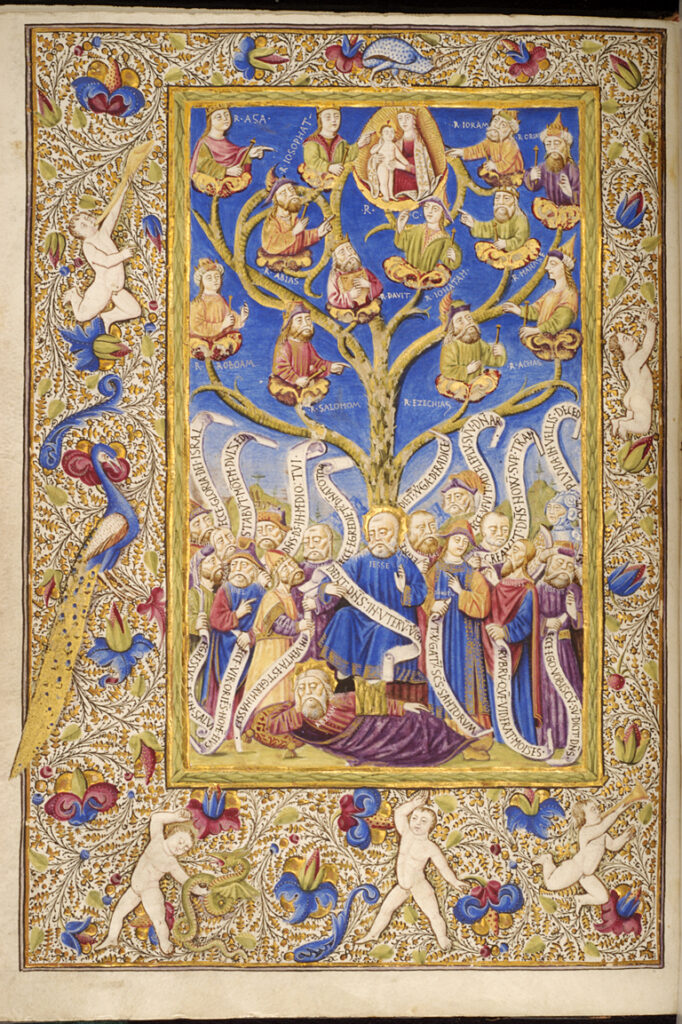19th December 2020
19th December - O Radix Iesse
O come to deliver us, and do not delay.”
Today’s antiphon follows on from Exodus by turning to the prophecies of the Promised Messiah.
The first sentence of the antiphon is a reference to Isaiah 11:10 (“In that day the root of Jesse shall stand as an ensign to the peoples; him shall the nations seek”). It is also quoted by St Paul (Romans 15:12), who confirms that the long-awaited Messiah has arrived.
However, inserted into this reference to Isaiah 11 is the phrase, “Kings fall silent before you”. This does not relate to any of the glorious and kingly prophecies, but comes from the Song of the Suffering Servant, in Isaiah 52. After describing how this Servant will suffer and be disfigured beyond recognition, Isaiah adds: “kings shall shut their mouths because of him”.
So this antiphon, in its first line, succinctly refers us directly to the Easter mystery, forecasting the Passion, but more significantly, the exultation of the Servant that will follow, through His Resurrection. And crucially, as Isaiah already suggests, this Redemption will be universal: for all the nations, the kings and peoples.
The final phrase, “do not delay,” is a direct reference to a particular prophecy of Habakkuk, who is given a vision by the Lord. In the Jewish tradition, this vision, which “awaits its time”, concerns the promised Messiah. In the Greek translation of the Old Testament, the pronouns referring to the vision are changed to masculine (whereas “vision” is feminine in Hebrew), as a direct reference to the Messiah. The prophecy is then picked up by both the letter to the Hebrews and by St Peter’s letter in the New Testament, thus taking up this refrain again in expectation of Christ’s Second Coming.
In this way, the third antiphon at once captures both the historic manifestation of the Messiah, with His Saving Mission, and His future arrival with the renewal of the heavens and the earth.
Stefan Kaminski
Director, The Christian Heritage Centre

